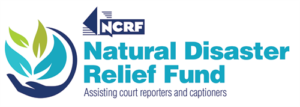By Matthew Barusch

Activity in state legislatures is in full swing for the year, and January was a very busy month for court reporting legislation. Our state associations have begun this year by being very active advocates for the court reporting profession, and we applaud our state leaders’ efforts to protect and support court reporters nationwide. As you well know, court reporters are affected by a wide variety of issues
One of the most pressing issues facing the court reporting profession is certification and licensure. While 26 states have some form of mandatory certification and licensure for court reporters, NCRA’s home state of Virginia does not, and we worked to assist Virginia Court Reporters Association in their efforts to institute these requirements. Unfortunately the bill, SB 1441, did not pass out of committee and will no longer be considered this year. The state of Utah also had a bill introduced that deals with this issue. HB 278 repeals the original Certified Court Reporters Licensing Act and modifies requirements for licensure to requirements for an NCRA or NVRA certification. Introduced Feb. 5, this bill has not yet been heard in committee. Some states are also exploring other avenues to establishing certification and licensure recognition. The state of Texas’ Judicial Branch Certification Commission is currently considering proposals made by Texas Court Reporters Association and Texas Deposition Reporters Association on how to make it easier for reporters to work in the state.
Another important issue gaining traction and severely affecting the court reporting profession is the issue of independent contractor classification. Last year, the California Supreme Court established a new “ABC test” for determining independent contractor classification in the Dynamex case. This test is now receiving debate in the nearby state of Washington, which has introduced HB 1515 to change the definition of independent contractor to include this test. This legislation, while meant to “level the playing field for employers who pay for workers’ living wages and benefits, and ensure that more workers have access to the wage and social insurance protections,” could have unintended consequences for freelance reporters’ ability to work in the state, which is why NCRA is working with the Washington Court Reporters Association to oppose it. The legislation has been heard multiple times in committee, but as of Feb. 6 has not been voted on for approval.
Electronic recording continues to be a challenge that court reporters deal with at the state level. The state of Minnesota is considering legislation (SF 21) that would create a task force to evaluate the expanded use of electronic recording in court proceedings. Finally, some state legislatures are considering salary increases for official court reporters. Both Oklahoma and West Virginia have bills introduced that would provide annual salary increases for officials.
NCRA is proud of the members, state leaders, and affiliated associations that are dedicating their time and effort to advance profession-friendly legislation in the states. We remain dedicated to supporting and assisting our state affiliates in their advocacy efforts, as we work together toward our common goal of protecting the court reporting profession and ensuring its longevity for generations to come. Remember, YOU are our best and most important advocate. Without members like you reaching out to elected officials, dedicating your time to volunteering for your state association, and remaining engaged with NCRA and your state, the profession could not survive. But together, we can overcome any challenge we face.
For more information on state legislation and NCRA’s advocacy efforts, contact Director of State Government Relations Matthew Barusch at mbarusch@ncra.org.




